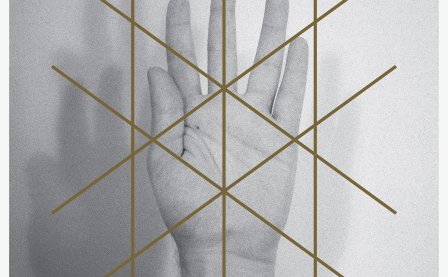John Wiese is well known and respected in the realm of ‘people who do noise,’ crafting a sound that myself and others have referred to as being both brutal and difficult. So perhaps it’s not surprising that I had to check the volume several times to make sure my speakers weren’t malfunctioning during the brief introductory segment to Wiese’s new album, Seven of Wands. “The New Dark Ages” showcases Wiese in a rare mode, one of reflective quietude. But while it’s certainly uncharacteristic of his past work, it’s indicative of the direction of large portions of this particular release.
“Alligator Born in Slow Motion” follows the same course as “The New Dark Ages,” with strange reverberating tones giving off a cold, calm shimmer. While some tracks, such as the elongated blast of “Scorpion Immobilization Sleeve,” do lean toward the more abrasive textures for which he’s known, many of the others here focus on a musique concrète aesthetic, even reminiscent of the less melodic work done by BBC Radiophonic Workshop pioneers Daphne Oram and Delia Derbyshire (particularly the latter’s radio broadcast with Barry Bermange from 1964 known by the several titles Dreams, Within Dreams, Dreaming, etc.).
Only in the latter half of Seven of Wands does Wiese gradually shift again toward caustic textures, with “Corpse Solo” and “Don’t Move Your Finger” being prime examples. Unlike previous releases, Wiese mostly inserts harsher passages in select moments, bringing to mind the works of Russell Haswell and Lasse Marhaug, especially works that are also not indicative of their oeuvre. (Haswell’s Wild Tracks features field recordings of ants and wasps butting heads with jet engines, automatic weapons, and falling snow; Marhaug’s 2007 album with Nils Henrik Asheim, Grand Mutation, plants Asheim’s gorgeous cathedral organ squarely in the path of a sonic field of randomly occurring static blasts.) Like his fellow sonic travelers, Wiese comes away from Seven of Wands with an album that achieves striking results by shifting the listener’s attention toward a softer drone palette, even as it occasionally discomforts with a din of squall. “Don’t Stop Now You’re Killing Me” does an especially tactful job of summing up the album’s dichotomy by saving the most dramatic use of noise and silence for its 15-minute-plus runtime finale.
Seven of Wands takes its title from a tarot card. The card, generally, depicts a man on the top of a hill surrounded by opponents trying to claim what he has, with the man wearing two different shoes to indicate indecisiveness. While the card is intended to represent an overall feeling of fulfillment and satisfaction at the end of a struggle, it also warns that success following in the wake of such a struggle also means defending their position in order to maintain it. Wiese is clearly a leader in his field, a position others would hope to obtain by besting him at creating better albums. Now while it may just be coincidence, given that the track titles do not reflect the general tone implied by the album’s name, it’s telling that the last two tracks both begin with the word “stop,” and if the remaining words are removed from these titles, it literally supports an argument for indecisiveness: the first reads “don’t move” and the next “don’t stop.” John Wiese has struck a nice balance between compositional clarity and tonal abrasion — don’t move and don’t stop indeed, sir.
More about: John Wiese




